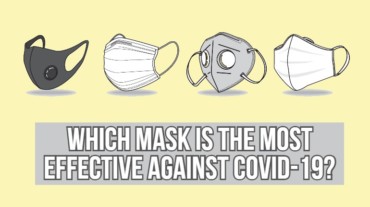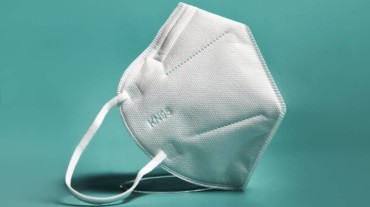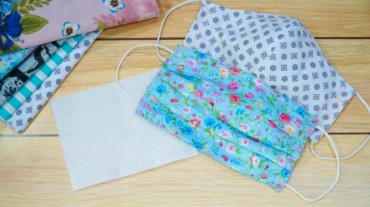
Now that it has been months since the covid-19 pandemic began, we are all aware that the highly-infectious disease is caused by the severe acute respiratory syndrome coronavirus and can get transmitted through respiratory droplets when a person coughs, sneezes, or even talks.
Along with this one of the first bits of information that we received from health organizations from the world over was that using face masks can significantly reduce the risk of SARS-CoV-2 virus transmission.
And ever since the market has been filled with different varieties of masks. With businesses trying to benefit from the situation, it is our responsibility to understand what actually works and shows effective results and what is a marketing gimmick.
Masks have now become a part of our wardrobes and our lives, and thus it is important to know what kind of masks actually will save us from the risk of SARS-CoV-2 virus transmission. In fact, a recent study tested the effecitveness of masks to suggest which ones work best.
This is what the study had to say
Published in the journal, Science Advances, a research conducted by a group of scientists at Duke University tested 14 different types of masks to determine which offers the best protection against SARS-CoV-2 infection. One of the first eliminations that they suggested was that of bandanas, knit masks and gaiters. These are the least effective methods of covering one’s face and must not be used.

They have constantly emphasised on how simple and effective it is to just wear a mask and curb the spread of the infection. Considering the fact that as many as 40% of infected people do not know they carry the virus and can be transmitters of the virus, wearing a mask by everyone can reduce the chance of asymptomatic transmission.
So which type of masks work the best?
The study identifies three most effective kind of masks that can be used for effective prevention of transmission of the disease.
1. N-95 masks
Often used by healthcare professionals, N-95 masks are said to work best in preventing the transmission of respiratory droplets during regular speech. These masks consist of tangled fibres in order to filter the pathogens in the air, and they are also designed in a way that they fit very close to the face and the edges form a seal around the mouth and nose.

However, it is suggested that you do not go for an N-95 mask unless you are a health worker or an essential service provider, since they are in critical supply. Not only that, recently the Ministry of Health has also warned all states and union territories against the use of N-95 masks with valved respirators. According to the Centre, these masks do not prevent the virus from spreading and prove to be “detrimental” to the measures adopted for its containment.
So with all the complications and contradiction, we say you should go for simpler and effective alternatives and leave the N-95 masks alone.
Select Topics of your interest and let us customize your feed.
PERSONALISE NOW2. Surgical face masks
A surgical face mask generally fits loosely over the nose and mouth and is a part of PPE (Personal Protective Equipment). These masks cover for the large cough or sneeze droplets, splashes, or sprays effectively. However, they are not ideal for the smaller droplets. Remember that you must never share these masks with anybody and must refrain from log term usage to avoid self-contamination.
3. Cloth face coverings
These masks can be made using a variety of fabrics and items of clothing, mostly a tightly woven cotton fabric is most suitable. Research shows that a combination of different fabrics like cotton, silk, chiffon, flannel, and various synthetics happens to be the most effective.

Even the advisory from the Ministry of Health emphasised upon making these mask at home and at the regular washing (after every single use) and cleanliness of these masks.
Now that you know choose responsibly and please don’t step out of your house without a mask.